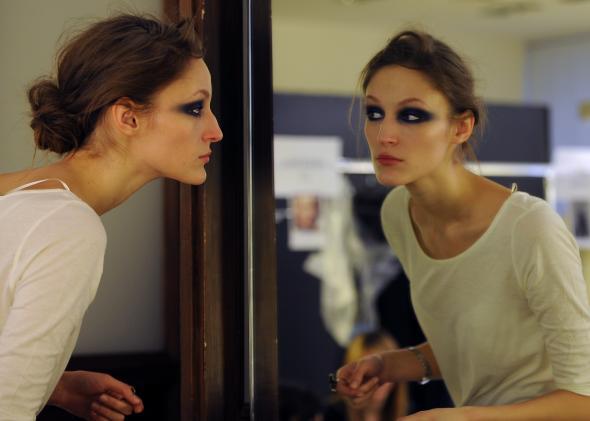This question originally appeared on Quora.
Answer by Brittany Vaughn:
When I was young, I was gifted with an exceptionally high IQ, great athletic ability, and the desire for adventure and discovery. However, what was the most consistent trait that other people talked about?
“Oh, you’re so pretty!”
“Oh, I wish you’d wear your hair down every once in a while. You’d look so much prettier!”
“Aren’t you pretty? You should wear a dress. It’ll make you stand out even more.”
“You should wear makeup. You’d make all the boys drool!”
“If you want that job, you’d better dress up nice. They don’t want to hire an ugly girl.”
Even my mother, who wanted me to be a high-achiever, was guilty of complimenting my perhaps slightly above-average looks more than my exceptional intelligence. As a result, I find myself fighting this stereotype on a daily basis. I am fighting to unlearn that I should spend more time doing my hair and makeup than studying for a test—and yes, this ingrained mindset has cost me quite a bit of ground in terms of grades and opportunities because these “female rituals” are such a habit that they take up my time without me even realizing what is happening.
Not only do I have to fight this mindset in order to focus on what truly matters to me, I also have to deal with the consequences—I am still judged first and foremost by my looks instead of my intelligence. I pay the price for what matters to me. It’s no wonder women have a hard time getting ahead in many fields and instances; not only are we taught to engage in meaningless rituals that take up the time we could be using for other pursuits, but we also have to fight against a culture that looks at our bodies before it even listens to what we are saying (if it listens at all).
And, as far as evolutionary explanations go, they are great as far as understanding some things about us. However, what we have to take into account is the sheer adaptability of the animals that evolution helps to shape; this is the reason we have survived so well in so many environments. While the evolutionary explanation may explain some of what is going on, it does not explain the particular conception of beauty that our culture is pressing. Why makeup and skinny bodies? Why not the larger figures favored by some cultures? Why not obvious muscle? Why not peacock feathers sticking out of our ears (to put a point to the arbitrariness)? Even so, we might still say that the emphasis for females is on “beauty,” whatever that conception may be. Still, without a certain culture there to press it, what would there be to strive for in terms of “beauty”?
If one thinks about the things we find attractive or unattractive and compares them to the things that truly indicate genetic health (which is what we, by evolutionary explanations, should be striving for), they sometimes, but not always, overlap. Do skinny (underweight) figures indicate genetic health? Do a few pimples indicate unhealthiness? Do colored eyelids and thin eyebrows indicate genetic health? If the evolutionary explanation is correct, it would seem that our conception of beauty would match the indicators of genetic health, but they don’t always do so. In fact, in many instances, they indicate neither genetic health nor youth.
More questions on Women:
